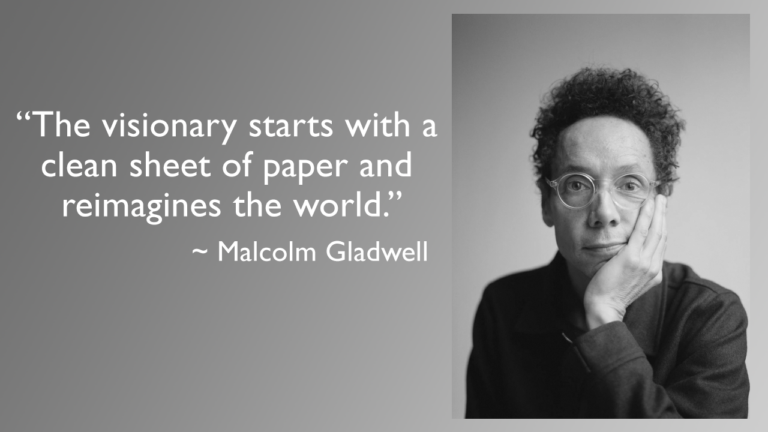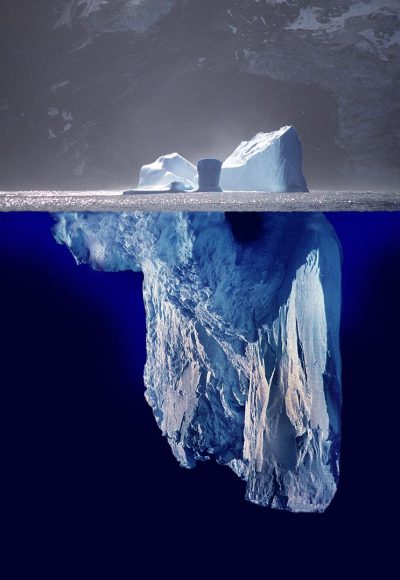
When people think of genius they think of high IQ, big brains, and being wicked smart. This might be true for some, but throughout history we’ve seen many examples of people who weren’t that smart but somehow were able to tap into their own genius and create something, amazing, extraordinary, game-changing, evolutionary.
Even in science, it isn’t always about being the smartest person in the room. It is, however, one’s ability to see something others weren’t quite seeing, and explore that path, even when it didn’t seem to make sense at the time. Louis Pasteur is a good example, as are Curie, Doudna, Buck, Parsons, Boole, Brunelleschi, and even Faraday.
So, what is the formula for genius, and why is it that I am so sure that everyone has the capacity for genius within them?
For years genius has been equated to Intelligence Quotient, however, we are now finding that IQ is related to the rational thinking mind, which is important and has its merits, yet is not where true genius stems from.
Genius is one’s ability to see things in a new way. Seeing things differently. Being a visionary. And this ability comes from developing one’s curious nature, challenging rather than accepting, pushing boundaries of thought and action, experimenting, exploring, and having fun in the process. All of this resides within the intuitive mindset.

Are you born with this? That’s the billion-dollar question, isn’t it? And the simple answer is YES! We are all born with genius.
You have to understand that you are actually born a genius. Two things dictate how that genius will be cultivated.
One has to do with how much latitude and freedom you are given in your upbringing. Did your parents encourage you to question, explore, observe, experiment, and challenge your own curiosity? Were you free to be messy and adventurous? Or were you taught to obey the rules, not make noise, sit up straight, not ask too many questions, and keep quiet unless spoken to? Obviously, I’m using an extreme example of the contrast, but the result is what’s important here.
The other is your ability to challenge, question, and push back against the standards of education. Most adults will tell you that they learned many things about the world later in life that was never taught in school. Even some companies, when hiring, will tell you to forget everything you’ve learned in school.

Let’s be clear, school has some merits as far as educational value, but usually, this happens during college years. Earlier education is about passing you through to the next level and becoming a productive contributor to society. That’s basically it. College provides a connection with others, discipline in learning, and new thoughts offered to you by teachers and professors who push beyond the required limits of tenure and challenge young minds.
But then there are those who feel constrained by formal education or can no longer see the value in continuing along a linear path.
Neither is right or wrong, but what’s important is your perspective. Are you there to just get a degree so you can have a successful career? Nothing wrong with that. But it’s not where genius resides or is fostered.
For genius to evolve within, you need to adopt some tools and habits you might not be used to accessing, at least not full-time. Most humans have been conditioned to flip the paradigm and place rational thinking way above intuitive thinking. Yet genius, true genius, places importance on the intuitive mindset.

Both have their place, but genius resides in making your intuitive mind your dominant thinking style. It doesn’t mean that rational isn’t important and doesn’t have value. Rational when following intuition, can have real momentum in areas like science, medicine, engineering, programming, and technology.
“Logic will get you from A to B. Imagination will take you everywhere.”
~ Albert Einstein
When I talk about the 10% solution, I’m not talking about Sherlock Holmes’s use of cocaine, which was actually his seven Percent solution.
I’m referring to that overused analogy of the iceberg, where we only see ten percent above the surface and not the other ninety percent which is where all the hard work resides.

But genius isn’t necessarily a result of hard work. It is, however, a result of a myopic focus, a relentless pursuit to discover or uncover something new, the willingness to continue down an untried path that can be lonely, and not capitulating to societal standards, especially when your journey is marred with failure and doubt and second-guessing your own thinking.
Genius is creating something from nothing.
It’s the moment that nothing becomes something beautiful, elegant, useful, or necessary,
but not necessarily practical.
Where we often get tripped up is when we think innovation is the same as genius. The way to understand this distinction is that innovation is typically about business. Innovation has merit when it shows financial gain or prosperity. Again, nothing wrong with that.
Innovation is usually about improvements on an old or existing product or service in order to stay competitive or to keep one’s advantage within the marketplace. It usually requires a new perspective on an old idea, giving it a facelift or additional purpose. This is convergent thinking, funneling an idea down to its best next version. If companies don’t innovate, they run the risk of becoming obsolete or losing their share of the market. Innovation does have its place of importance, no question.
But genius is about creating something new. This is where divergent thinking comes into play. And the reason genius is not cultivated more within the marketplace is that genius doesn’t always yield reward. When something new is created there isn’t always an immediate value or understood purpose for its existence.
Think about automobiles, planes, television, or even cell phones. Initially, we were fine with what we currently had. Horses and wagons worked just fine. Planes weren’t initially considered for commercial use. Radio was the staple of every household. And some people didn’t even use their standard home phone very often, opting for letter writing or sending postcards.
It’s not until these imaginations are adopted into society, that we see their real value and potential. Yet every genius idea that was adopted disrupted the old ways and actually contributed to our evolution. And only once these genius disruptions were adopted could we then even consider innovating to keep them alive and viable.
Genius is within you. But there are specific practices you must adopt and cultivate in order to foster and encourage your genius to be at the forefront of your thinking.
Curiosity: Like many people, you probably don’t ask enough questions. This is in part because, as adults, we don’t want to come off as stupid or unknowing, especially when we can look anything up on the Internet. So we have conditioned ourselves not to ask questions. Why is that so? How does that work? Who invented that? Or.. the bigger question that most geniuses ask of themselves… “What if…” Asking ‘what if’ offers new possibilities and potential. It opens one up to ponder new thoughts and ideas. Learn to become more curious, and don’t be afraid to question things.
Stretch Your Comfort Zone: Routine. We tend to get comfortable or even complacent within our everyday lives. Routine means we don’t have to stress, challenge or think about things too deeply because we’ve done it so many times before. But it offers no growth. It doesn’t challenge you to push yourself, to see what you’re capable of. Get out of routine, habit, and conditioning. Challenge yourself by doing something new, or in a different way. As I always suggest, travel to someplace new. You’ll often see how others live, how their world looks, and this can provide you with new perspectives, thoughts, and ideas.
Challenge Your Beliefs: Your entire upbringing is a result of beliefs. Initially, these beliefs are not your own. They are the beliefs of your tribes, family, peer groups, or the area in which you live and reside. As you become part of your tribe, you adopt these beliefs as your own, rarely or never challenging them. And why should you? These beliefs seem to work for your tribe, so why question what works? Yet when something new is brought into our perspective, suddenly we question those beliefs. We question if they are right, if they are serving us well. Or, we question the outsider who introduced us to a different way to look at things. Beliefs can be habits, standards, values, and even prejudice. And we don’t know it’s wrong or that there might be a different or better way until we see something outside of our tribe that offers new thoughts and ideas. Until that time, we go on accepting what our tribes say is right.
A different kind of Bar Mitzvah – There is an island in the South Pacific called Pentecost, also known as Vanautu, where young boys, sometimes five years of age, stand on high scaffolding, sometimes 80 feet high, and tie a vine to their ankles and jump off towards the ground, as a rite of passage into manhood. Civilized societies would challenge those beliefs, while these islanders feel this is completely normal.
The point is that one should always understand where their beliefs came from, and look outside their tribes to see how the rest of the world does things. Only then can you make an informed decision about whether it’s right for you or not.
Play, Fantasize, Daydream: Creativity comes from these three areas. It is the freedom to step outside the rules and reimagine the world. Pretending is such an important part of creativity. Artists understand this. Van Gogh looks at a landscape and imagines something more vibrant, brilliant, and dreamlike. Dali saw things bending, melting, and transforming into new and different ideas. Pollock saw the world in abstract ways, with illogical patterns that made perfect sense to his playful mind.

Writers are like this too. They see the world from unique perspectives. They play with words to conjure new thoughts, ideas, and stories. They create characters who are bold or timid, or push and challenge or conform, yet their stories spark and ignite our imaginations so thoroughly, that we can actually picture their characters coming alive in our minds.
Daydreaming is simply one’s ability to stretch beyond the linear confines of logic and rational. It allows us to fantasize, to imagine flying, traveling, exploring, living somewhere exotic, discovering hidden treasure, venturing to the moon, and beyond.
We enjoy and appreciate creativity, but some think they aren’t capable of such wild thinking. However, the reality is that they haven’t been conditioned to utilize and cultivate their creative nature. But it’s never too late.
Experiment, Take Risk: Learning to fail is the greatest gift one can possess. By being willing to fail, you train yourself to become more experimental and not so regimented in your thoughts, actions, and ideas. Taking risk means you are retraining your brain to no longer see failure as a permanent wall or roadblock, but instead, as a tool to explore new directions. Experimentation is just that… seeing where things lead without drawing conclusions, just yet. This leaves your mind open to more divergent thinking. When your mind is in an experimental state, you see many options, avenues, and opportunities. Your thinking suddenly becomes bigger, and your ideas become bolder.
A key to growth is to not think of it as taking risk, because that might limit you. If you think of it, instead, as just experimenting, then you immediately become more adventurous and playful, and you are willing to push the envelope and try new things. Once you encourage this behavior within yourself, it becomes a fun process that you begin to look forward to.
Be Adventurous: Be a pirate. Be like Captain Cook, Charles Darwin, or Lewis and Clark, Magellan, Genghis Kahn, the Early Romans, The Vikings… Don’t settle. Get curious, see what’s out there, and even more so, see what you’re capable of. Think Sir Edmond Hillary, Amelia Earhart, Ada Lovelace. Try new things. And here’s the key, the adventure is both outside yourself and within. When you explore, push, and challenge, you are changing who you are. Sometimes in slight ways, and sometimes you learn a whole lot about who you are and what you’re capable of.
Start with something small. Be adventurous about how you dress. Be adventurous about trying new foods, listening to new kinds of music, watching films you haven’t seen before, or going to venues and events you might never have experienced before. Then branch out. Push and challenge your ideas, dreams, and desires. And here’s a secret, learn to be adventurous both in your mind and in your actions. No one will judge you, and even if they do, most of the time, those judging you would never push or challenge themselves, and their beliefs are what’s keeping them stuck with no forward movement.
Be a pirate, my friend.